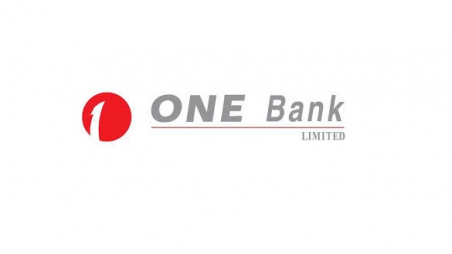ONE Bank penalised for cooking the books
It has been asked to recast its balance sheet for the year 2020 and republish it within 45 days of receiving the instruction

The Bangladesh Bank has imposed a financial penalty on ONE Bank for cooking up financial numbers in its balance sheet for the year 2020.
At the same time, the listed private commercial bank was asked to make necessary corrections in the balance sheet and republish it within 45 days after receiving the instruction, according to ONE Bank sources.
If the bank fails to change the balance sheet within the stipulated period, its managing director will face a penalty as per the banking law. A managing director will be removed if he faces a financial penalty.
M Fakhrul Alam, managing director of ONE Bank, earlier told The Business Standard they had no problem changing the balance sheet, but the auditor had refused to do so because the price sensitive information had already become public.
"That is why approval from the Bangladesh Securities and Exchange Commission was needed. But when we contacted the commission, it did not allow us to change the price sensitive information," he said.
A letter sent to the bank on Monday (9 August) read that the bank had declared cash dividends violating the banking law as it had not maintained its provision shortfall against loan losses.
It did not take prior approval from the Bangladesh Bank for declaring dividends either.
The bank was instructed to keep dividends unchanged, subject to meeting the provision shortfall and bringing necessary changes to financial numbers in the balance sheet.
But the bank did not follow the instruction.
Mentioning the violations of the banking law, the bank was served a show-cause notice, but their reply was not accepted by the Bangladesh Bank, the letter said.
In this perspective, the central bank penalised the bank.
The Bangladesh Bank can impose a fine of a minimum of Tk50,000 and a maximum of Tk10 lakh for such violations.
When contacted, M Fakhrul Alam told The Business Standard they had not finalised the balance sheet following the central bank's instruction.
"Now we will change it within the stipulated time," he said.
He said the central bank had fined his bank for violating the banking law. "We will request the authorities to review the penalty."
When a bank is penalised, it does not get access to the various refinancing facilities of the Bangladesh Bank. It will also face limitations on branch expansion and other business expansion activities.
A financial penalty also erodes a bank's reputation in the external market as foreign banks consider this when they give lines of credit for export and import.
Earlier on 3 August, The Business Standard ran a report on ONE Bank's balance sheet manipulation titled "ONE Bank cooks the books to siphon cash to owners".
Defending the report, the bank sent a rejoinder to The Business Standard, claiming they had declared dividends following the instruction of the Bangladesh Bank.
The rejoinder also claimed it was impossible for the bank to cook up any information and figures on its own, and the balance sheet was finalised following the central bank's instruction.
However, the central bank's penalty now proves how the bank gave misleading information.
Why and how the bank cooked the books
ONE Bank has cooked up all its key figures to jack up its profit so that its directors, who hold over 30% of shares, can take out more money in the form of cash dividends.
In reality, the bank's net profit was not as high as it showed because it did not adjust its provision shortfall – the money it has to keep aside against its bad debts before declaring net profit.
So, instead of putting money aside to offset its bad loans, the bank showed that amount as its profit as well.
The inspection department of the Bangladesh Bank on 10 March this year sent a letter to the bank, allowing the provision forbearance of Tk80 crore against loan losses.
However, it instructed the bank to follow the dividend policy in case of declaring a dividend and take consent from the off-site supervision department in this regard.
On 29 March, the bank declared 11.5% dividend, including 6% cash and 5.5% stock, without taking permission from the central bank.
Moreover, it declared a higher dividend than the previous year despite a 21% fall in its profit.
In 2019, the bank declared 10% dividend, including 5% cash and 5% stock.
According to the bank company act, a bank cannot give cash dividends if it has a provision shortfall against loan losses.
In this perspective, the Bangladesh Bank in its letter said the declared dividend is not consistent with the bank's financial health.
Moreover, the bank did not take consent from the central bank.
Considering the price sensitive information, the bank can keep its dividends unchanged, subject to adjusting a specific provision shortfall from retained earnings.
At the same time, the bank was instructed to make a correction in the financial statement.
In the letter, the bank was also advised to be cautious about complying with the Bangladesh Bank's instructions.
But the bank published the balance sheet without making any change in its financial indicators.
Provision is kept aside from the gross profit before tax. If ONE Bank has to adjust the loan loss provision amount, it will impact its net profit and consequently, other indicators will change.



 Keep updated, follow The Business Standard's Google news channel
Keep updated, follow The Business Standard's Google news channel
















